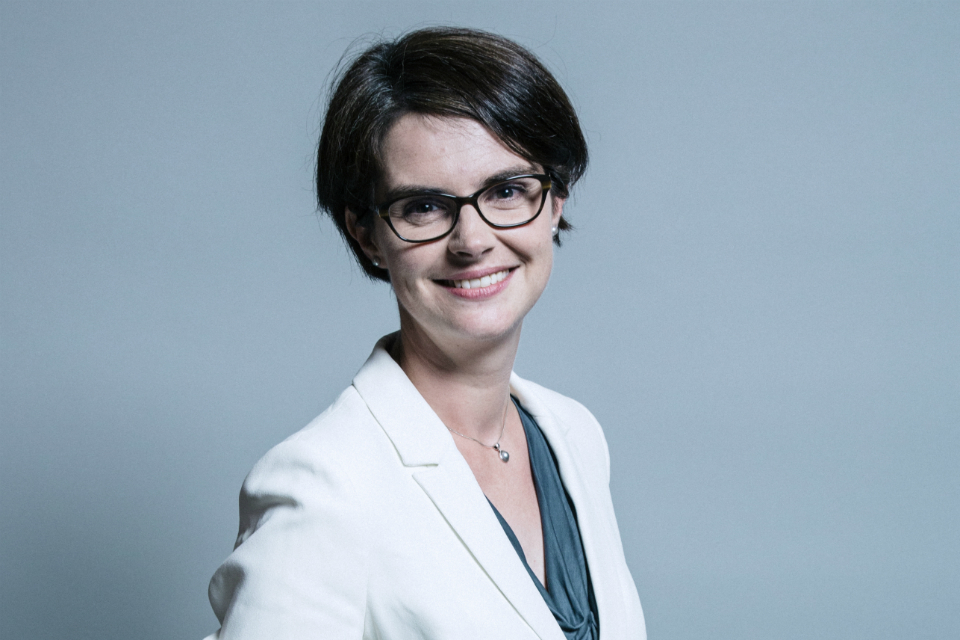Minister for the Constitution speech at European Commission: 15 Oct 2018
Minister for the Constitution, Chloe Smith, gave a speech on democracy at the European Commission in Brussels.

Introduction
We agree democracy is essential for free, well-governed societies to prosper.
We in the UK, along with you, are part of a community, extolling the virtues of democracy.
But as the leaders of the G7 agreed earlier this year in the Charlevoix, “democracy and the rules-based international order are increasingly being challenged by authoritarianism and the defiance of international norms”.
It’s up to all of us to work together to defend our democracy and preserve it for future generations. In my view we must respect it, protect it and promote it - those are the themes I will be working on in the UK, Europe and around the world.
As the Minister for the Constitution in the UK Government, today, I will set out what we are doing to defend the UK’s democracy. We are committed to:
- maintaining transparency, fairness and equality for parties, campaigners and voters
- we want to protect the safety and security of the electoral process, free from fraud and interference
- and we want to build on our democratic traditions to remain world leaders in maintaining confidence in our democracy
Transparency for digital campaigning
Starting with one of the challenges we face - for the last three decades the internet has not only revolutionised the way we interact with each other, it has revolutionised the way we do politics, too.
Information is only a moment away, and on the whole those changes are positive.
Thirty years ago, voters also didn’t also have to worry about whether their choice was being influenced by misleading political ads on social media.
The digital landscape poses challenges which we can’t afford to shy away from addressing.
On international affairs - we know that certain states routinely use disinformation, bots and hacking as foreign policy tools. It’s not surprising that they should try to influence other countries democratic systems to further their own agendas.
Democracy is based on citizens being confident that the elections they vote in are fair and transparent.
Governments must act to meet the pressures of digital campaigning so this confidence is assured, in terms of foreign-originated content, but of course also domestic content and debate too.
We are working to protect the news environment so accurate content can prevail and has a sustainable future.
We have to be alive to the fact that traditional news outlets aren’t the main source of information anymore.
We must give everyone the skills they need to distinguish between fact and fabrication.
In the UK, we are publicly consulting on how to require digital campaigning material to include the details of who has produced it.
Because voters need to see which organisation or individual is targeting them.
Salisbury
People need to be informed about the threats facing our country. I am immensely proud of the work done by the National Security Communications Team and the government’s Russia unit in revealing the role of the GRU in the despicable Salisbury attack.
The actions of the GRU are genuinely a threat to all our allies in democracy.
We are working together by sharing information about their activity with our international partners so that others can learn more about the threat they pose.
Safety and security of elections
In the UK, we have seen no evidence of successful interference in our democratic processes. We are vigilant.
I am confident that our voting system is secure.
Whilst UK voting systems do not lend themselves to direct electronic manipulation because our ballots are conducted with paper and pen.
But we recognise that confidence in the electoral system, and participation in it, are very much linked.
In the UK - there’s a reform we’re doing - you only need to say your name and address to get your ballot paper - a test based on a 19th century assumption that people knew their neighbours at the polling station.
Clearly, this process can be open to abuse and needs to be updated for our more modern, populous society.
One approach is to bring the UK in line with other European countries such as the Netherlands, France and Germany and many others where people can confirm their identity when they vote.
Conclusion
We know it is vital that everyone has confidence that their vote is theirs, and theirs alone.
Not only that - they have to feel that their vote matters, and that their voice is being heard, too.
I want the reputation of the UK’s democracy to be absolutely solid:
-
known for its transparency and fairness
-
known for being a safe and secure electoral system, untainted by misinformation
-
I want it known for being a democracy that genuinely does work for every voter
-
and known for the willingness of its government to work hard to increase confidence in our democracy for the people it serves
As I said, we must respect, protect and promote our democracy for the next generation.
That work has a vital task for our times.